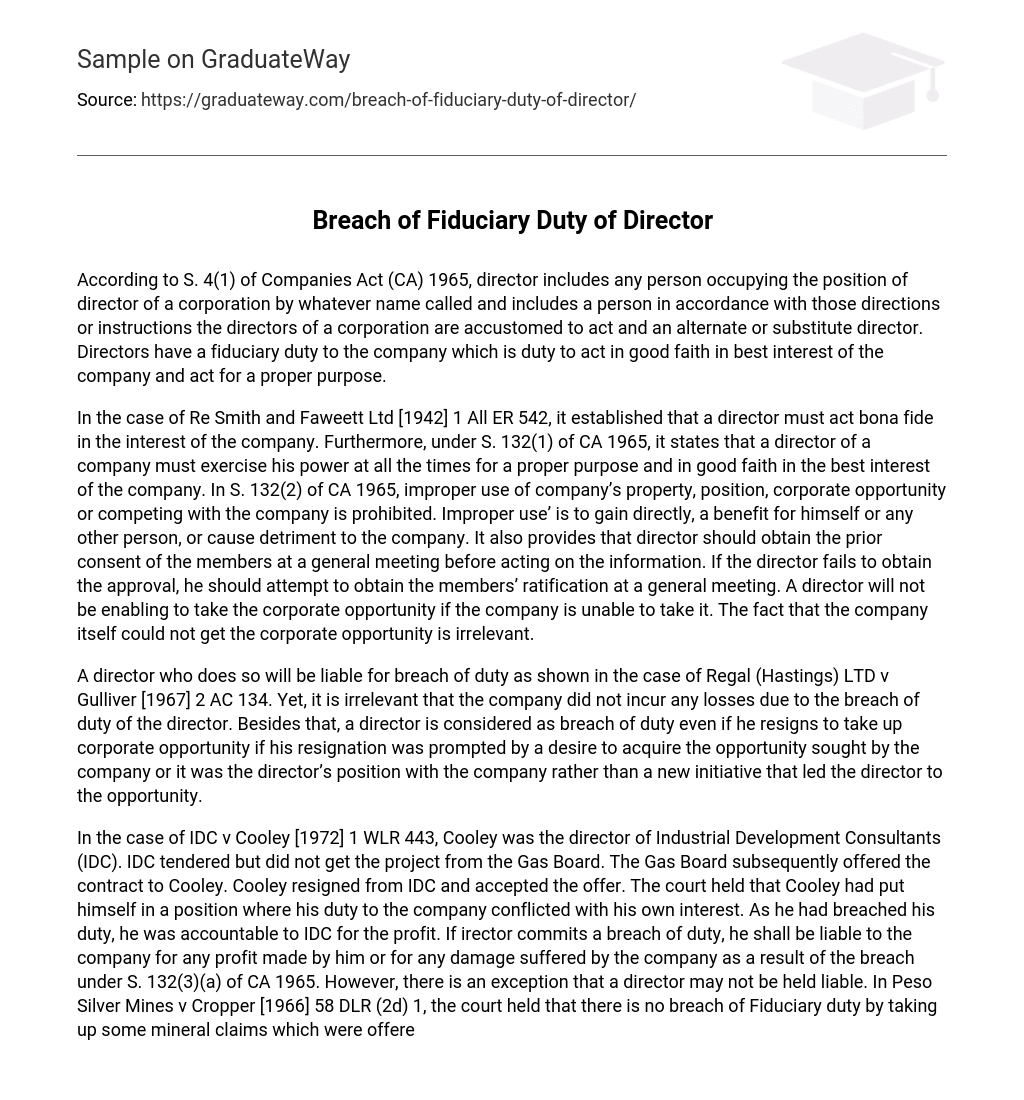As per section 4(1) of the Companies Act (CA) 1965, anyone holding a director position in a corporation is deemed as a “director”. This encompasses individuals who adhere to customary directions from the company’s directors and those who serve as alternate or substitute directors. Directors have a fiduciary duty to act honestly and with a valid purpose, always prioritizing the best interests of the company.
The case of Re Smith and Faweett Ltd [1942] 1 All ER 542 established that directors have a duty to act in the best interests of the company and with good faith. CA 1965 Section 132(1) requires directors to always exercise their power for a proper purpose and in the best interest of the company. Section 132(2) prohibits directors from improperly using the company’s property, position, corporate opportunity, or competing with the company. ‘Improper use’ means benefiting themselves or another person at the expense of harming the company. Furthermore, this section states that directors must seek prior consent from voting members at a general meeting before taking action based on certain information. If consent is not obtained, directors should try to gain approval at a general meeting instead. It is important to note that if a corporate opportunity cannot be seized by the company, then directors are also prohibited from taking advantage of it.
A director can be held accountable for breach of duty, as demonstrated in the case of Regal (Hastings) LTD v Gulliver [1967] 2 AC 134. It is important to note that the company’s lack of financial loss does not excuse the director’s breach. Additionally, a director can be found in breach of duty even if they resign to pursue a corporate opportunity. This is applicable if the resignation was driven by a desire to obtain the same opportunity being sought by the company, or if it was the director’s position within the company that led them to the opportunity rather than a new initiative.
In the case of IDC v Cooley [1972] 1 WLR 443, Cooley, the director of Industrial Development Consultants (IDC), did not receive the project tendered by the Gas Board. However, the Gas Board later offered the contract to Cooley. Upon accepting the offer, Cooley resigned from IDC. The court ruled that Cooley had placed himself in a situation where his obligation to the company conflicted with his own interest. As a result of breaching his duty, Cooley was held accountable to IDC for any profit made by him or any damage suffered by the company, as stated in S. 132(3)(a) of CA 1965. Nevertheless, there is an exception that exempts directors from being held liable. In the case of Peso Silver Mines v Cropper [1966] 58 DLR (2d) 1, the court concluded that there was no violation of fiduciary duty when a director took up mineral claims offered to him after the company had rejected them following a genuine consideration by the Board of Directors.
The narrowness of Regal has faced criticism, with suggestions that the “line of business” test proposed by Austin would be a better alternative. According to this test, a director would be prohibited from pursuing a profit-making opportunity if it falls within the scope of the company’s current or future business. In the case of Queensland Mines Ltd v Hudson (1978), it was determined that a director did not breach their duty by seizing an opportunity that had been previously presented to and declined by the company. The company had given their approval for the director to pursue the venture.





